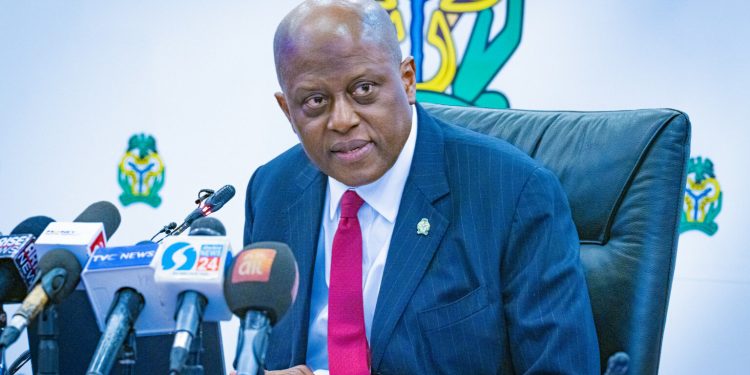The Central Bank of Nigeria (CBN) has held the Monetary Policy Rate (MPR) steady at 27.5%, as Governor Yemi Cardoso pointed to signs of economic resilience, including a stable naira, improved balance of payments, and easing inflation pressures.
Addressing journalists in Abuja at the end of the two-day Monetary Policy Committee (MPC) meeting, Cardoso said the decision aimed to consolidate recent macroeconomic improvements and sustain the momentum in price moderation over the medium term.
He highlighted narrowing disparities between the Nigerian Foreign Exchange Market (NFEM) and Bureau De Change (BDC) rates, a positive balance of payment position, and stabilising fuel prices as key factors behind the MPC’s decision. “The committee welcomed the moderation in food inflation and commended ongoing efforts by the government to boost food supply and address insecurity in farming regions,” Cardoso said.
Despite these positive signals, the committee raised concerns over declining crude oil prices. Cardoso attributed the fall to increased production by non-OPEC countries and global trade uncertainties, especially U.S. policy shifts. He warned that these developments could threaten Nigeria’s fiscal stability and the implementation of the 2025 budget.
“The MPC noted with concern the recent decline in crude oil prices,” Cardoso stated. “To mitigate risks, we urge fiscal authorities to scale up foreign exchange earnings from oil, gas, and non-oil exports.”
The CBN Governor also reiterated the importance of non-oil revenue diversification and prudent public spending. He said rising electricity costs, persistent forex pressures, and structural inefficiencies were contributing to inflationary trends.
In addition to the MPR, the MPC retained all other policy parameters: the asymmetric corridor remained at +500/-100 basis points, the Cash Reserve Ratio (CRR) was held at 50% for deposit banks and 16% for merchant banks, and the Liquidity Ratio stayed at 30%.
On growth, Cardoso reported that Nigeria’s real GDP grew by 3.84% year-on-year in Q4 2024, up from 3.46% in Q3, driven mainly by the services sector. He added that external reserves rose by 2.85%, reaching $38.90 billion as of May 16, 2025.















